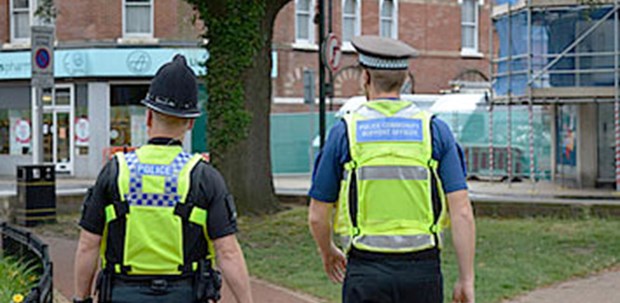Force rallies after Britains first race audit reveals extent of discrimination
Dorset Police has defended its corner on finding itself centre stage as Theresa May warned forces there is nowhere to hide on discrimination after a world-first audit published research laying bare racial divides in health, education, employment and the criminal justice system.
Dorset Police has defended its corner on finding itself centre stage as Theresa May warned forces there is nowhere to hide on discrimination after a world-first audit published research laying bare racial divides in health, education, employment and the criminal justice system. The south west force admitted it is in a relatively unique position having a low ethnic minority ratio after being singled out by the Prime Minister to explain why black people were seven times more likely to be arrested in its area than in Essex last year. Figures from the Government`s new Ethnicity Facts and Figures website that delves into 130 aspects of UK life revealed that, for every 1,000 black people living in Dorset, 127 were arrested last year. The equivalent figure in Essex is only 18. They also detailed a national arrest average of 44 per 1,000 for black people and 15 per 1,000 for the white population. The 2011 census found that 0.32 per cent of people in Dorset and 1.34 per cent in Essex were black. The English average was 3.48 per cent. As Mrs May said public services must explain or change any variations, the Dorset force responded by pointing to the countys easy access from larger cities that have a significantly higher proportion of ethnic minority population. A force spokesperson told Police ProfessionalNeither the census nor the audit figures take into account searches and arrests involving non-residents. As the audit points out: Care is required in comparing rates of stop and search between police forces areas especially those with high numbers of visitors because they are based on the resident population in each ethnic group. For example, in Dorset and Sussex police force areas, the rates of stop and search of black people were very high relative to the resident black population. Dorset like other rural counties has a number of active organised crime groups involved in drug supply that are based outside the county but target our local communities. Interventions against these groups are intelligence-led to target those that offer the greatest risk of harm, such as from the use of violence or dealing drugs. For example, of 24 people arrested on suspicion of possessing drugs with intent to supply at a summer festival in the county, 13 were black, Asian and minority ethnic but did not live in Dorset. The force statement added: These examples give context to understand why Dorset is shown as disproportionate. Dorset Police will always continue to monitor and scrutinise the use of police powers. Police and crime commissioner (PCC) Martyn Underhill agreed that the census records for Dorset do not capture people who travel through the county as tourists. It also doesnt include people who travel here to engage in criminal activity. This is often drug-related and its right that local officers crack down on this activity to help keep Dorset safe. But he acknowledged the statistics for Dorset appear high and he promised to seek reassurance from the force over this issue. He added: Interestingly, the report also outlines wider socio-economic issues. It shows that being from a particular ethnic background affects how likely you are to suffer from poor physical or mental ill health, have issues with alcohol and substance misuse and on average have poorer educational and employment outcomes. This in turn impacts on your risk of coming into contact with the criminal justice system. David Munro, the Association of Police and Crime Commissioners (APCC) national lead for Equalities, Diversity and Human Rights said he welcomed the movement made by government`s report. But I know for many BME people, they still too often feel theyre experiencing discrimination which suggests to me, more needs to be done to support all communities, added the Surrey PCC. Tackling issues like race inequality in the provision of public services was Theresa Mays mission in politics, No 10 declared as the Government published its racial dis


